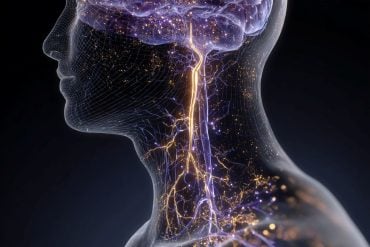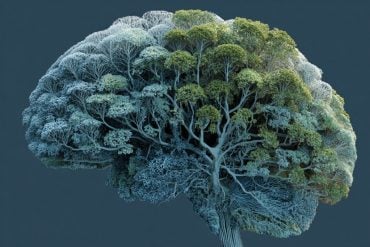Summary: A large real-world study of 236 young adults found that caffeine significantly boosts positive emotions, particularly in the morning. Participants who had coffee or another caffeinated drink reported feeling happier and more enthusiastic compared to mornings without caffeine.
The effect was consistent regardless of usual caffeine consumption, anxiety, or depressive symptoms. Researchers suggest this is due to caffeine blocking adenosine receptors and possibly reversing mild overnight withdrawal symptoms.
Key Facts:
- Morning Impact: Caffeine’s positive mood effect is most pronounced early in the day.
- Consistent Across Groups: Effects were similar regardless of caffeine habits or mental health status.
- Mechanism: Works by blocking adenosine receptors and boosting dopamine activity.
Source: Bielefeld University
People who regularly consume caffeine are usually in a better mood after a cup of coffee or another caffeinated drink—an effect that is much more pronounced in the morning than later in the day.
This finding comes from a new study by researchers at Bielefeld University and the University of Warwick, published in the journal Scientific Reports. Participants reported feeling significantly happier and more enthusiastic on those mornings compared with other days at the same hour when they had not yet had coffee.

Links to negative moods such as sadness and feeling upset were also observed, though these effects were less pronounced: after drinking coffee, participants felt slightly less sad or upset than on comparable days without coffee. Unlike the boost in positive emotions, this effect was not dependent on the time of day.
In total, 236 young adults in Germany were studied over a period of up to four weeks. Participants completed short questionnaires on their smartphones seven times a day, indicating their current mood and whether they had consumed a caffeinated drink in the preceding 90 minutes.
Accordingly, the study focused on caffeine consumption in everyday life, not just in artificial laboratory settings.
Perceived effect regardless of consumption habits
The researchers also investigated whether coffee has different effects on different individuals. Justin Hachenberger from the Bielefeld University in Germany says, ‘We were somewhat surprised to find no differences between individuals with varying levels of caffeine consumption or differing degrees of depressive symptoms, anxiety, or sleep problems.
‘The links between caffeine intake and positive or negative emotions were fairly consistent across all groups.’
The researchers expected that people with higher levels of anxiety would experience negative mood changes, such as increased nervousness, after consuming caffeine. However, Hachenberger emphasises that people who react to caffeine in a bad way may avoid it and that the study did not include people who completely abstain from caffeine.
Role of caffeine withdrawal symptoms remains unclear
The researchers explain the mood-boosting effect of caffeine on morning mood with its ability to block adenosine receptors, which promotes wakefulness and makes people feel more energetic.
‘Caffeine works by blocking adenosine receptors, which can increase dopamine activity in key brain regions—an effect that studies have linked to improved mood and greater alertness’, says Professor Anu Realo from the University of Warwick.
Yet, it remains unclear whether these effects are related to a reduction in withdrawal symptoms after a night’s sleep. ‘Even people with moderate caffeine consumption can experience mild withdrawal symptoms that disappear with the first cup of coffee or tea in the morning’, says Anu Realo.
Caffeine consumption: a universal habit
‘Around 80 per cent of adults worldwide consume caffeinated beverages, and the use of such stimulating substances dates far back in human history’, says Professor Sakari Lemola from Bielefeld University, the study’s senior author. ‘Even wild animals consume caffeine; bees and bumblebees prefer nectar from plants that contain caffeine.’
Still, the study authors caution that caffeine can lead to dependence. Excessive intake is linked to various health risks, and consuming it later in the day can lead to sleep problems.
About this caffeine, mood, and neuroscience research news
Author: Jörg Heeren
Source: Bielefeld University
Contact: Jörg Heeren – Bielefeld University
Image: The image is credited to Neuroscience News
Original Research: Open access.
“The association of caffeine consumption with positive affect but not with negative affect changes across the day” by Sakari Lemola et al. Scientific Reports
Abstract
The association of caffeine consumption with positive affect but not with negative affect changes across the day
Caffeine is well known for its stimulant effects on the central nervous system, leading to enhanced cognitive performance and changes in affective states.
While these effects have been extensively studied in controlled laboratory settings, caffeine’s influence on affect in everyday life remains comparatively underexplored.
This study aims to bridge this gap by examining the associations between momentary caffeine consumption and affective states in naturalistic settings, while also accounting for potential moderators such as time of the day, individual differences, and contextual factors.
Employing an experience sampling methodology (ESM), we analyzed data from 115 participants aged 18–25 in Study 1 and 121 participants aged 18–29 in Study 2. Study 1 lasted 14 days yielding 8335 completed surveys and Study 2 lasted 28 days yielding 19,960 completed surveys.
Our findings indicate that caffeine intake was associated with subsequent increases in positive affect, while associations with decreases in negative affect were less consistent.
The association between caffeine consumption and positive affect was strongest within the first 2.5 h after awakening (i.e., in the morning). Tiredness and social context moderated this association.
Overall, the findings of this ESM study suggest that caffeine may play an important role in modulating affective states in everyday life.






